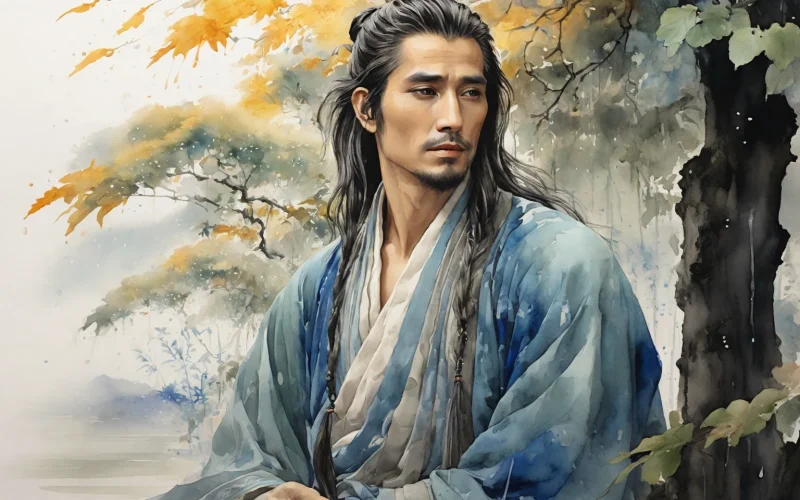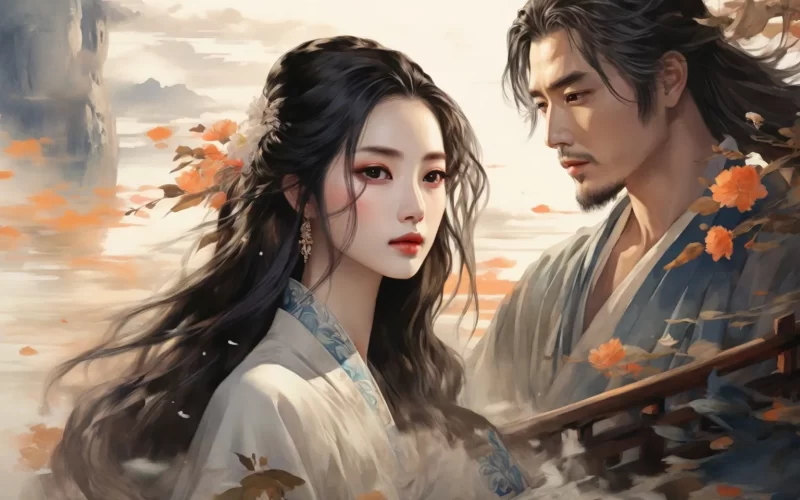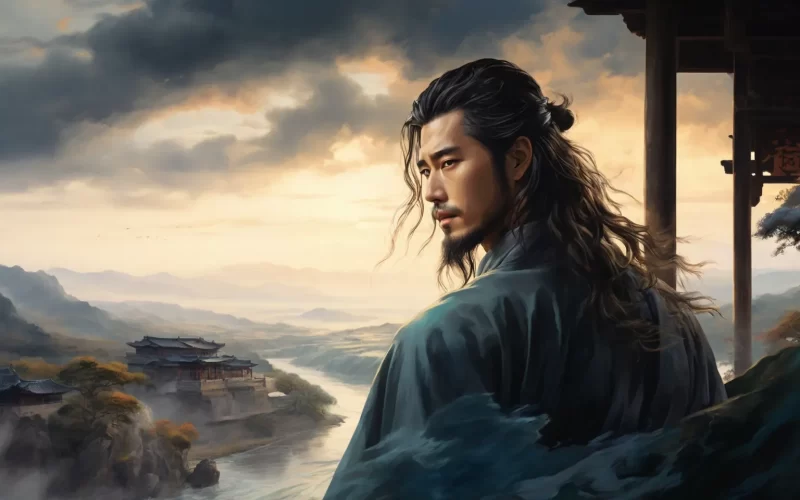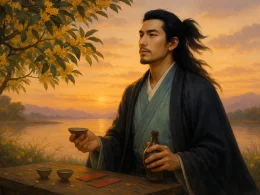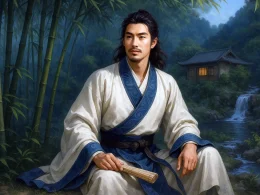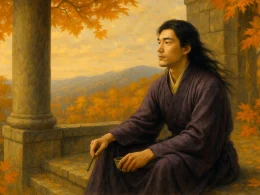Du Fu(杜甫), 712 - 770 A.D., was a native of Xiangfan, Hubei Province, born in Gongyi, Henan Province. Du Fu had a rough life, and his life of turmoil and displacement made him feel the hardships of the masses, so his poems were always closely related to current events, reflecting the social life of that era in a more comprehensive way, with deep thoughts and a broad realm. In his poetic art, he combined many styles, forming a unique style of "profound and thick", and became a great realist poet in Chinese history.
Popular works
Main experience
In his early years, Du Fu read a lot and received a broad cultural upbringing. At the age of twenty, he began to roam around different countries and lived a life of ease and indolence for about ten years. After the age of thirty-five, he went to Chang'an to seek an official position, but did not get it. He lived in Chang'an for nearly ten years, and even fell into a very poor state. It was not until he was forty-four years old that he became a minor official as a counselor of the Right Guardian's Office. In that year, the An Shi Rebellion broke out, and Du Fu went into exile for a period of time, then was captured and detained in Chang'an, from which he ventured to Fengxiang, the seat of the emperor at that time, in A.D. 757, where he was given the post of left collector by Emperor Li Heng of the Su Zong Dynasty, and soon afterward he was relegated to the post of household counselor in Huazhou.
After forty-eight years old, he abandoned his post and went to Shu, drifting in the southwest for a long time, relying on some of his friends who were magistrates, and at one time hanging on the official title of the Ministry of Public Works, although he had built a grassy hall in Chengdu, but did not live there for a long time. At the age of fifty-seven, he left Shu, drifted around Hunan and Hubei, and died at the age of fifty-nine in a boat in Xiangshui.
Literary Achievements
Du Fu's poems reflected the great changes in Tang society. In poems such as "Recollections of the Past", he depicted the affluence of the flourishing Tang Dynasty, yet at that time, a profound political crisis was already lurking. On the eve of the An Shi Rebellion, Du Fu saw the social phenomenon of the highest ruling group's desolation and corruption, and the sharpening of the antagonism between the rich and the poor at that time. His poems such as "The Walk of the Lillies", "The Walk of the Soldier's Cart", and "Five Hundred Characters from Beijing to Fengxian County" reveal a series of social contradictions, which were the manifestation of the class contradictions in the feudal society at that time.
After the An Shi Rebellion, Du Fu had the opportunity to get more in touch with the people's life, and wrote many famous chapters that graphically expressed major political themes. Although he only sympathized with the people's sufferings and did not propose any solutions, he still reflected the political situation and social outlook of the Tang Dynasty during the period of great historical transitions in a more realistic and expansive way, which is why it is called the "History of Poetry" by the later generations. Du Fu's concern for politics and the fate of the country was always connected with his idea of loyalty to the king. In his view, to eliminate war and turmoil, to restore the prosperity of the Tang Dynasty and to alleviate the burden of the people, he mainly relied on the saintly wisdom of the monarch, so he always put his hope on the emperor in his poems. When he pursued his personal fame or settled down in his own well-off life, more unhealthy emotions flowed out of his poems. These are the class imprints on Du Fu's thought.
Du Poetry art has many aspects of achievement, no matter ancient style, close style, five words, seven words, all have his unique strengths. His ancient style poetry, represented by his new-titled lefu, which is an instantly recognizable piece, creatively developed the fine tradition of the Han-Wei lefu; and in the modern style he advanced the development of metrical poetry through his creative practice. Du Fu extensively studied the creative experience of his predecessors and actively absorbed the nutrients of folk songs, achieving what he said in his poems, "not to despise the present and love the ancients".
Du Fu's poems have made painstaking efforts in language art, sometimes with a lot of refinement and somberness; sometimes with simplicity and naturalness, and with distinctiveness and vividness. Regardless of lyricism, narrative, writing characters, writing natural scenery, all reflect the poet's image thinking. It is not by chance that Du's poetry has had a profound influence on the poetry of later generations.






